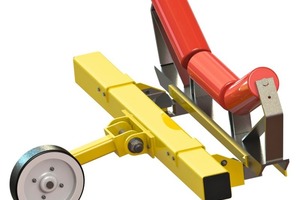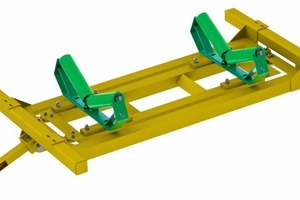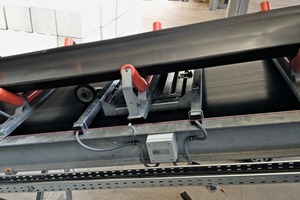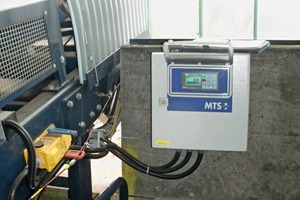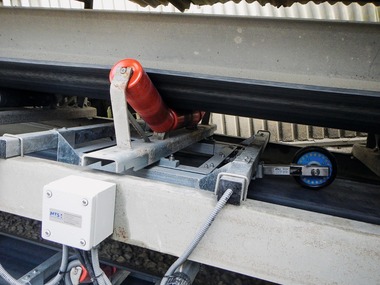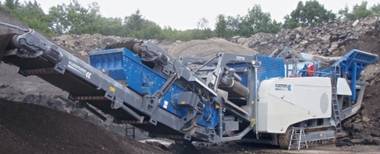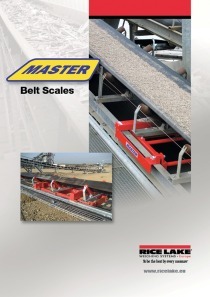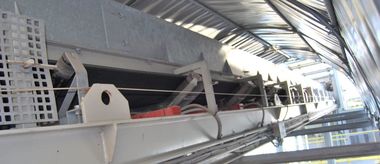MTS belt scales for all applications
The more value a company attaches to precise metering of the mass flows produced in its operations, the more important is the precise measurement of the materials conveyed on belt conveyors. There is corresponding demand for weighing systems that continuously measure the bulk solids in the production process in terms of quantity – ideally without requiring any additional time or conveying effort.
Integrated belt scales are therefore almost standard for weighing bulk solids. They offer a series of benefits. Belt scales measure the material conveyed gravimetrically, and generally more precisely than volumetrically based systems. In addition, they can be used in a wide range of different belt models and they can be quickly and simply installed. Belt scales continuously and automatically weigh the material conveyed during regular transport on the belt conveyor – and that with high accuracy. Single-idler belt scales have measurement errors of 1 to 2 %. Multi-idler belt scales reach even higher accuracies of <1 % and are also approved for applications subject to calibration (Fig. 1).
The measurement accuracy of belt scales, however, is dependent on several factors:
The belt conveyor itself: a steady, quiet and straight belt run, constant belt tension, and ideally uniform belt load as well as a belt speed adjusted to the delivery rate, generating sufficient pressure of the bulk solids on the measuring frame (load carriers) of the scales, are key factors.
Moreover the measurement accuracy of belt scales is dependent on the mechanically robust and stable design of the measurement frame and efficiency of the control system.
The MTS belt scales have proven effective in different application conditions. They obtain precise measurement data and, in combination with a modern controller such as ModWeigh FBW, provide as a stand-alone weighing system a number of advantages in operation and error diagnosis as well as the storage and further processing of the data.
The EBW series of belt scales from MTS Messtechnik Sauerland have the following special features: The frame system is modular. It consists of a torsion-resistant load carrier with one or two load cells and support spars that can be adapted to the specific frame and belt widths. Years of experience and intensive cooperation with many companies in the mineral processing industry have prompted the MTS technicians to steadily modify the EBW built-in scales for different delivery rates and applications (Fig. 2). MTS produces scales for stationary belt conveyors as well as special system solutions for mobile crushers and screens.
The EBW belt scales supplied by MTS have the following structural advantages:
A low height that enables installation even in belt conveyors with only a low interspace between upper and lower belt (Fig. 3)
Simple installation: The support spars are fixed by means of screw connections. This makes later installation in different belt models simple.
Robust design: The scales are engineered as standard from stable angular steel sections, hot-galvanized or with high-quality anti-corrosion coating. The scale is optionally constructed in stainless steel.
Protection: For the precise DMS load cells, overload protection and transport safeguards are included as standard.
Accuracy: High-quality, precise and standardized load cells made of stainless steel with OIML approval (C3 to C6).
For control, MTS uses the ModWeigh FBW – a modern, easy-to-use and menu-driven controller, specially coordinated with the belt scales (Fig. 4). The electronics consist of a separate evaluation system (main module) for every scale and a multi-channel-capable display and operating device. Up to eight scales can be operated from one display unit. A smaller MW99 display and the larger MD1 colour display are available.
Hall 5, Stand 155
//www.mts-systems.de" target="_blank" >www.mts-systems.de:www.mts-systems.de

